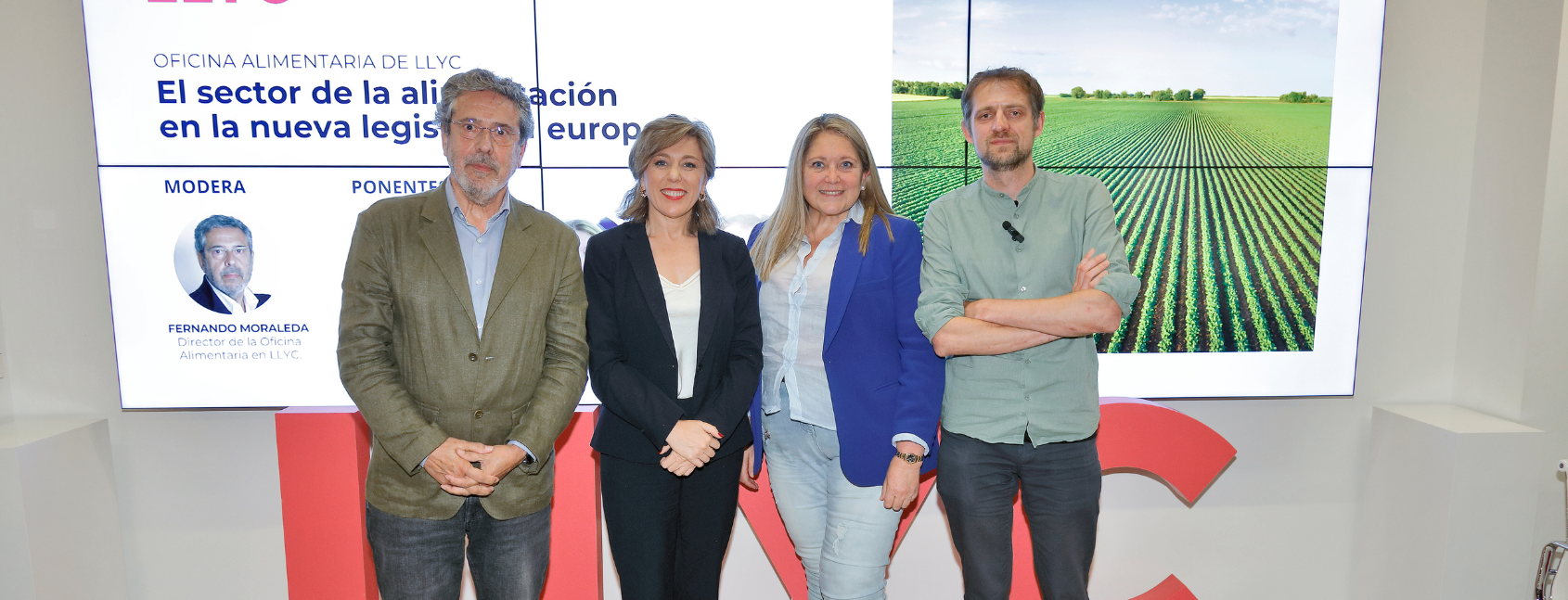-
CountriesSpain
LLYC held a roundtable at its Madrid headquarters to address the challenges of the food chain in the new European legislature. The debate, held on the eve of the start of the election campaign, was moderated by the firm’s Director of the Food Office, Fernando Moraleda, and was attended by the candidates of PSOE, PP, and Sumar to the European Parliament responsible for this sector. The three focused their messages on the future of the European Green Deal, the mirror clauses on EU imports, and the consequences of information overload in a sector that is key to the Spanish economy. It represents the main source of wealth for the Spanish economy, contributing 9.2% to GDP and generating 11.4% of employment in our country. Its future, beyond a national issue, is closely linked to European Union regulation.
Regarding the future of the European Green Deal and green policies, Ana María Romero believes that “it is important to seek solutions to climate change, always in collaboration with food sector professionals.” She states, “These solutions must be funded and need to be progressive with realistic timelines. Sustainability and profitability must go hand in hand.” Esther Herranz disagrees. In her opinion, “the Green Deal doesn’t allow farmers to live, and that’s why we want to suspend its implementation to seek a rebalancing.” She considers that “we all have the responsibility to stop climate change, but first we must provide farmers and ranchers with legal security.” For Florent Marcellesi, “There is a frontal attack against the Green Deal. Future generations will pay for this, so we must rethink our production and consumption methods. The CAP must move towards a more sustainable path. On June 9, we will vote on whether we want to revert to 20th-century agriculture or move forward towards a new model.”
Ana María Romero, the PSOE candidate for the European Parliament, has advocated for “greater border control. The food chain law needs to be improved. We want a much more open Europe, but without unfair competition.” Meanwhile, Esther Herranz, the popular candidate, considers this “wishful thinking” and calls for “a temporary suspension of the European Green Deal.” She adds, “The border control law was passed 15 years ago and has been continuously violated. We demand that those who want to introduce their food pay for the control, in the American style. This is the only way to ensure security and protect our producers.” Finally, Florent Marcellesi, Sumar’s candidate, asserts: “The clauses are the minimum to defend workers and farmers. This is how sovereignty and autonomy will be achieved. A sovereignty that must be sustainable in its entirety, as respecting these minimums is a matter of social justice.”
According to Fernando Moraleda, Director of the Food Office at LLYC, “The event revealed the need for public-private collaboration and the key role of our food chain, which is recognized as one of the most efficient in the global agri-food markets. There are studies that show how this chain behaved during the most severe stress period we have experienced as a population worldwide: the pandemic. During that period, the Spanish chain, along with Canada’s, was the most resilient and the one that supplied its citizens with food in quantity and quality.”
The upcoming European Parliament elections on June 9 will have a significant impact on the future of our food system. The direction of the European Green Deal and the “Farm to Fork” and “Biodiversity 2030” strategies will largely depend on these elections.
This content is translated with AI.



